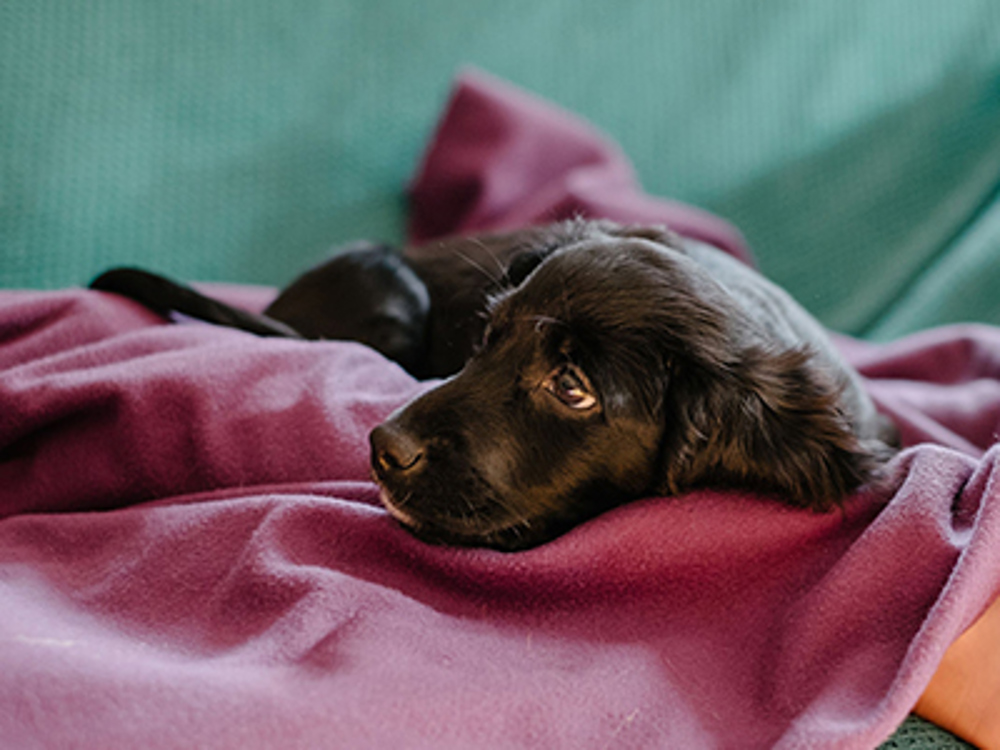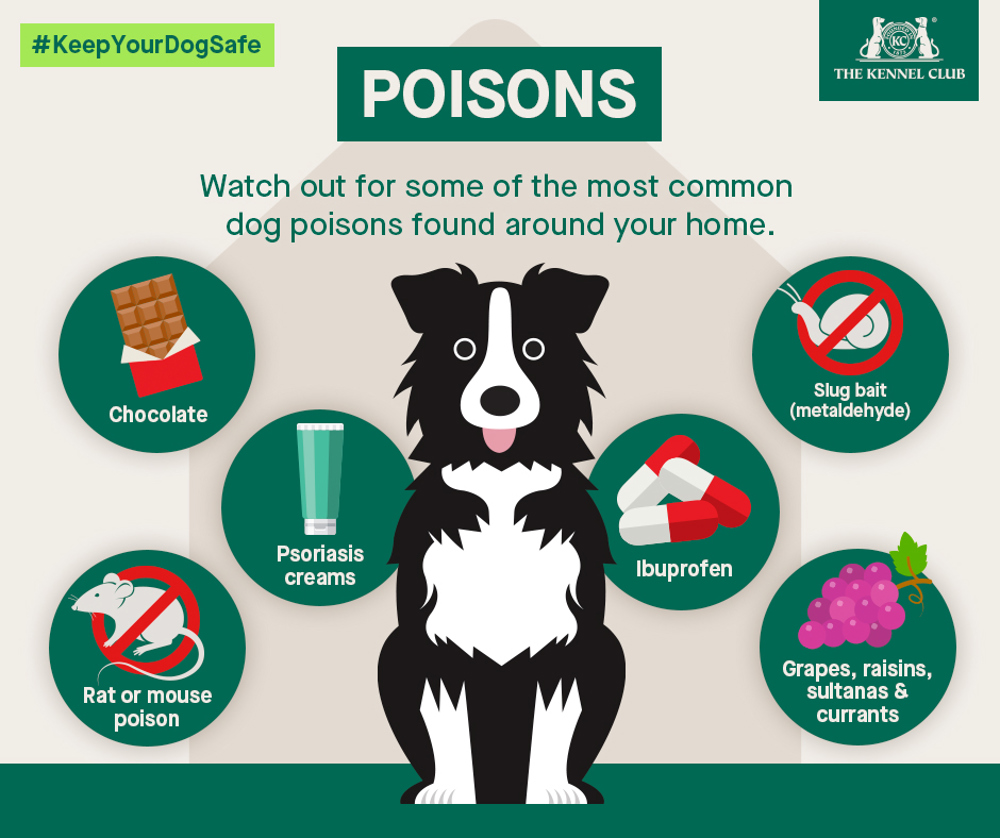
What is a poison?
A poison is a substance, which when introduced to an organism, is capable of producing an unwanted effect. When we talk about poisons, many people automatically think of dangerous chemicals such as cyanide or strychnine, but forget about substances that are more commonplace, such as plant leaves that cause skin irritation, or smoke from a cigarette. Many people are unaware of the poisons around their home or the risk that these can pose to their pets.
What things are poisonous?
Poisonous materials commonly found around your home could include:
- pharmaceutical products (both medications for humans and their pets)
- pesticides (ant baits, rodenticides, herbicides or slug baits)
- plants, venomous animals in your garden
- household cleaners

How can a dog come into contact with a poison?
Dogs can be exposed to poisonous substances in a number of different ways, such as through skin contact, substances in the eye, inhalation, or envenomation (through a bite or sting). However, the most common way for them to be poisoned is to ingest, or eat, a poison.
What to do if you think your dog is poisoned
If you think that your dog may have eaten, touched or inhaled something that it shouldn't have, speak to your vet straight away.
Never try to make your dog sick. Trying to do this can cause other complications, which may harm your dog.
Things to tell your vet
In an emergency you can help your veterinary practice make an informed decision as to whether your dog needs to be treated by them and, if so, what the best treatment would be. Where possible you should provide your veterinary practice with the following information:
- What poison you think your dog has been exposed to (e.g. chocolate, ibuprofen etc.). Include any product names, or lists of ingredients if relevant
- How much they may have been exposed to (i.e. 500mg, 500ml, one tablet etc, even approximations may help)
- When your dog was exposed to the poison (i.e. five minutes, five hours or five days ago)
- If your dog has been unwell and, if so, what clinical effects have been seen
It is easier for a vet to care for a poisoned dog if it is treated sooner rather than later. If you are in any doubt, don't wait for your dog to become unwell before calling for advice.
What to take to your vets
If you do need to take your dog to your veterinary practice, make sure that you take along any relevant packaging, or a sample of the poison, i.e. parts of plant or fungi. Always make sure that you yourself are protected and cannot be poisoned in turn.
How to use this information
The information is intended to be used to prevent poisoning by raising awareness of certain poisons, rather than as a document to be used in an emergency. If you think that your dog has been poisoned, or has come into contact with potentially poisonous substances, contact your local veterinary practice immediately.
Think your dog may be affected?
If you're worried about your dog's health, always contact your vet immediately!
We are not a veterinary organisation and so we can't give veterinary advice, but if you're worried about any of the issues raised in this article, please contact your local vet practice for further information.
Find a vet near you
If you're looking for a vet practice near you, why not visit the Royal College of Veterinary Surgeons' Find a vet page.
